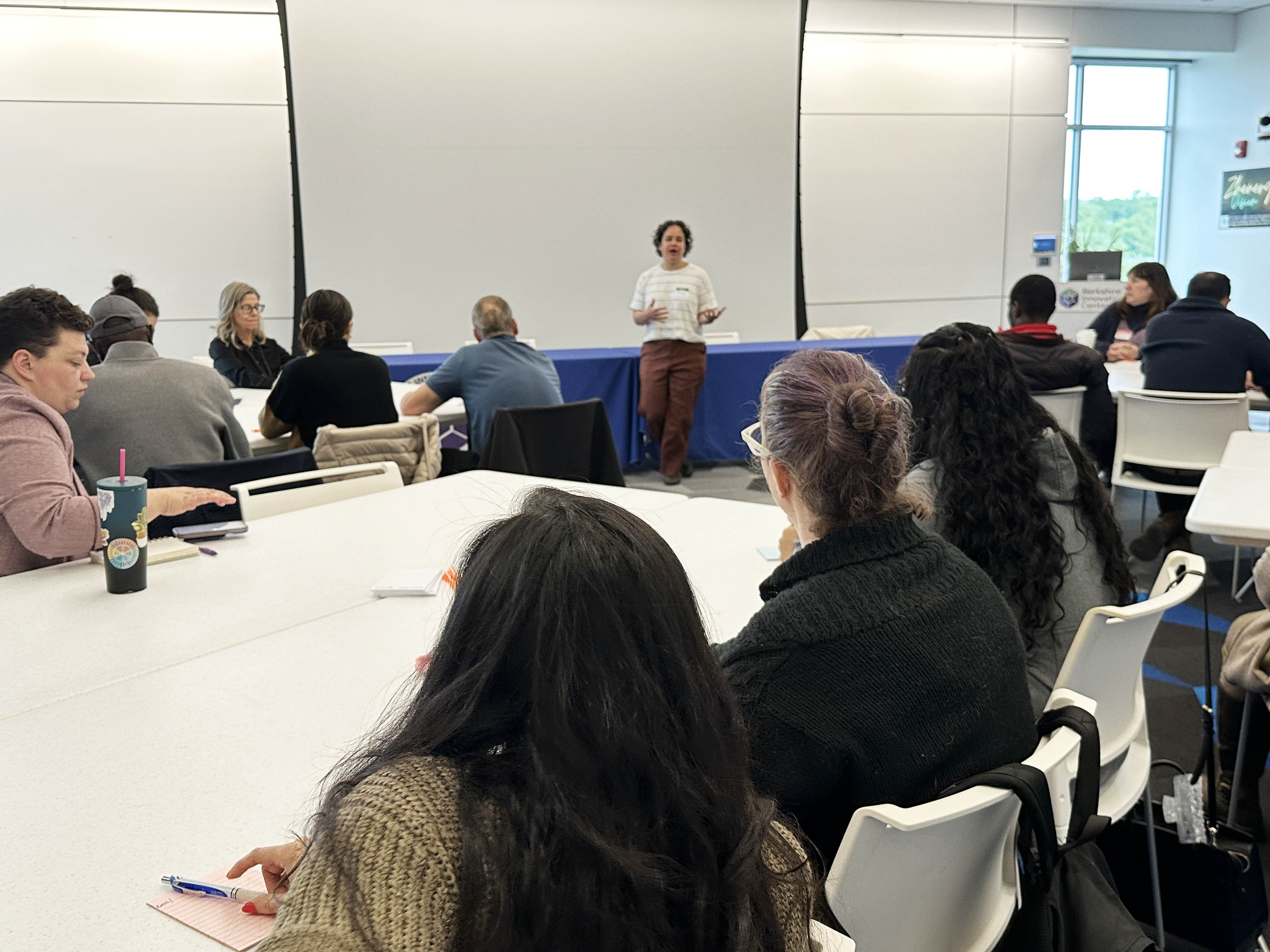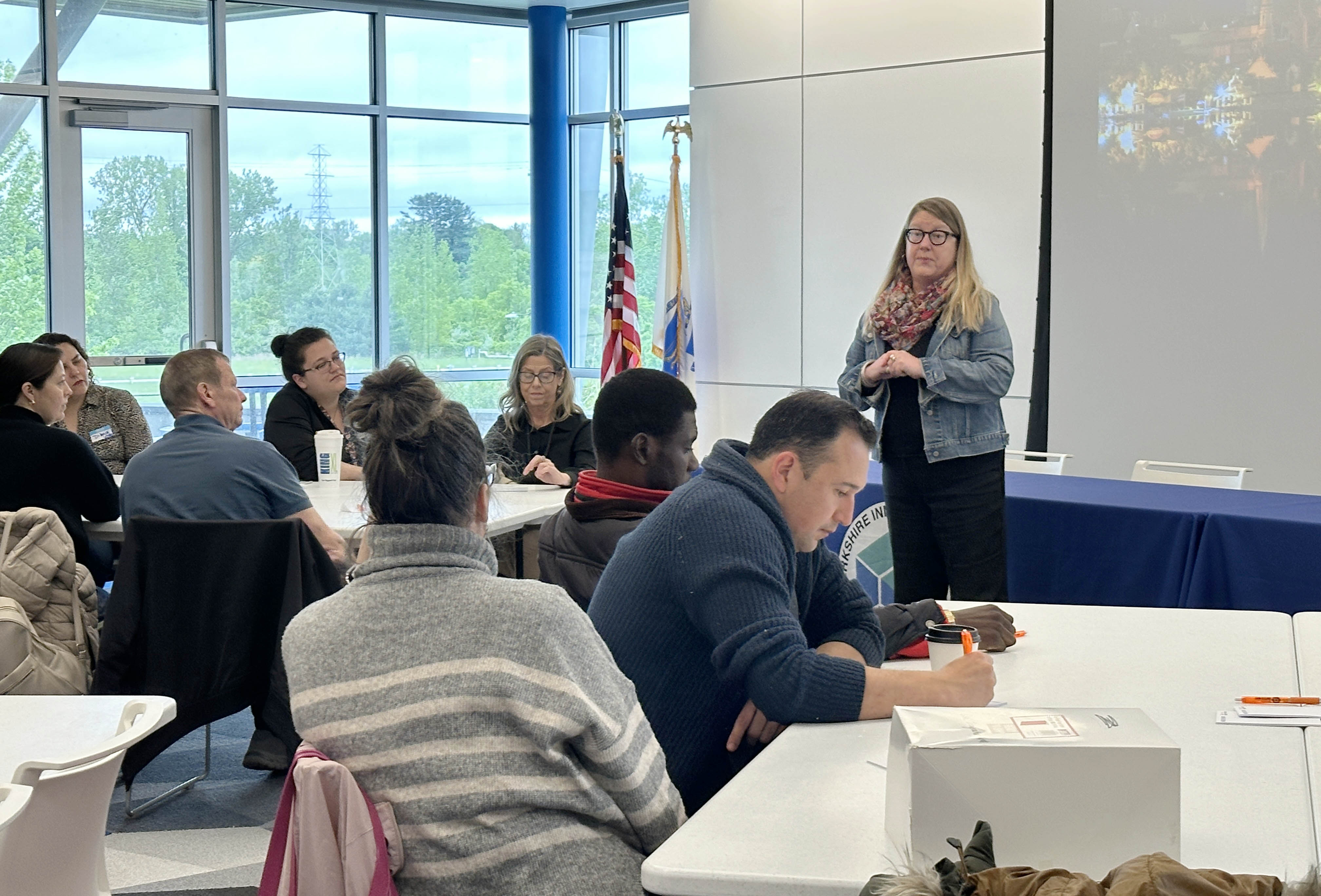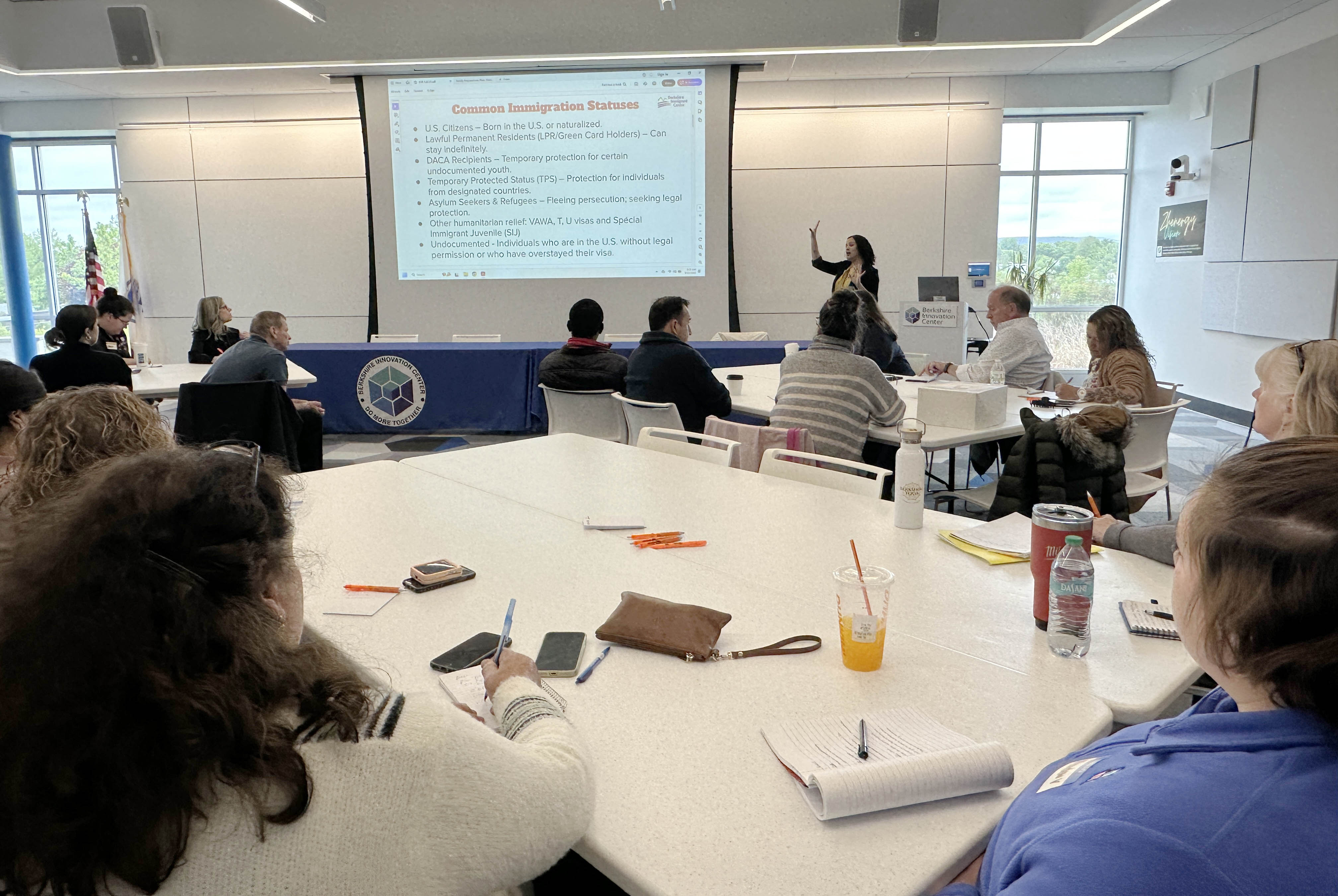Local organizations like Volunteers in Medicine (VIM) Berkshires and Berkshire Immigrant Center (BIC) have been helping immigrants access resources and navigate legal, medical, and educational systems for years.

When Berkshire County experienced an influx of new arrivals last year, Berkshire United Way (BUW) hosted a convening that enabled VIM, BIC, and a few other organizations to inform and prepare our network of navigators. Ilana Steinhauer, executive director of VIM, advised: “know your resources and use your connections.”
Right now, those resources and connections are critical to supporting this vulnerable population. BUW’s recent navigation convening circled back to immigration, allowing VIM and BIC, as well as BASIC (Berkshire Alliance to Support the Immigrant Community) and CHP Berkshires (Community Health Programs), to present up-to-date information to ensure families, agencies, and businesses are safe and prepared.
Ilana’s message to navigators this time: “think about how you can be a safe space.”

“The sense of urgency and fear in the community right now is why we brought together navigators and these trusted organizations,” said Katherine von Haefen, director of Community Impact at BUW. “The best way to help is by sharing resources and working together.”
“Talk to each other,” Ilana advised navigators. The work should be additive not duplicative, she said. “We don’t want to confuse families.”
“What’s happening with immigration is changing daily” and “no two cases are the same.” – Lorena Dus, director of client and community services at BIC.

BIC is the only accredited organization in Berkshire County that can give immigrants legal advice and practice law. Among the advice she offered, her number one takeaway was to “always refer to verified legal organizations or immigration professionals.”
Dr. Lara Setti with CHP Berkshires talked about the Family and Individual Emergency Preparedness Plan, which Ilana noted is “a real ask for navigators.” It is available on the BASIC website in English and Spanish.
Dr. Setti reminded navigators to be sensitive to what the family is experiencing and to “meet the patient where they are.”
Over the last two years there has been an uptick in anxiety, but right now it’s “way worse,” said Ilana, who advised navigators to “take care of yourselves.”
Giving immigration advice
(information provided by Lorena)
- Recommend memorizing one phone number by heart.
- Know the difference between warrants:
- Judicial warrant: must be issued by the court, signed by a federal judge, have a valid address and name, and have the date it’s signed (this warrant is only valid 10-14 days after issuance)
- Immigration warrant: issued by the Department of Homeland Security and signed by an immigration officer or judge; these are easier to get
- Warrants are not being issued in any other language but English, so help them identify key components like name, address, and date.
- If a space is marked “private,” an immigration officer can’t enter unless they have a proper warrant.
- If an immigrant has a driver’s license but not a REAL ID, they can’t fly but can still drive.
- Encourage clients to speak to banks, rent programs, and loan offices so they are able to access their funds.
- Have documentation of existence in this community; show connection to this community
U.S. Immigration and Customs Enforcement (ICE) encounters
If a bystander:
- Document the encounter from a safe distance
- Don’t speak on the immigrant’s behalf unless asked
- Provide emotional support and referrals to legal aid
- Encourage clients to know their rights: remain silent and refuse consent to a search without a warrant
At work:
- Don’t provide information without legal requirement
- Ask for a warrant signed by a federal judge
- Inform the family and legal counsel, if possible
- Develop a protocol for responding to ICE
Caregiver Authorization Affidavit
(information provided by Dr. Setti)
This affidavit legally grants the named party the right to make education and health care decisions for a minor child. The school and health care providers should have copies. Also create an emergency contact – a trusted family member, friend, or neighbor.
Criteria and recommendations for choosing a caregiver:
- Must be at least 18 years old
- Problem-solving skills
- Stable immigration status
- Reliable and trustworthy
Temporary Agent Authorization authorizes someone to make decisions for a child for a short period of time.
Other recommendations:
- Register the child’s birth in their country of origin
- Get a passport for the child
- Have a notarized travel letter, which Lorena cautions: know a country’s law and read airline instructions
